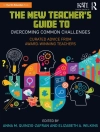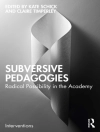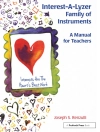This is a book for everyone who teaches. Whether you are responsible for your organization’s training and development, you are providing basic education in an elementary school, or you are creating workshops for professional development, this book will help you manage the dynamics of difference necessary to create an environment where all students can learn. Use this book as a workbook for small groups, or as a guide for improving the cultural competence of your teaching.
‘This book is a riveting and unparalleled resource for all educational merchants of hope. . . . The insights, learning strategies, and professional development structures in this edition illuminate a path for all leaders to successfully commit to the journey of being equity champions!’
–Dr. Erick E. Witherspoon, National Director of Equity Professional Development Services
Generation Ready
‘There is no greater honor than to have one’s professional work become the inspiration for a new way of thinking, and transformative literature and action that change the world for schools and the children and youth they serve. I am grateful that the ideas have been so skillfully brought to scale by these authors.’
–Dr. Terry L. Cross, MSW, Founder and Senior Advisor
National Indian Child Welfare Association
विषयसूची
Preface to the Fourth Edition
Foreword to the Third Edition
Foreword to the Second Edition
Foreword to the First Edition
Acknowledgments
About the Authors
PART I. UNDERSTANDING CULTURAL PROFICIENCY
1. Cultural Proficiency
Cultural Proficiency: An Inside-Out Approach to Difference
The Four Tools
A Historical Context
Why Would I or My School Want to Engage?
Learning and Educating Effectively
Living in a Global Community
Participating in the Community
Culturally Proficient Leadership: Diversity “Is”
Resources for Developing Culturally Proficient Leaders
Read the Text First
Cultural Proficiency Books’ Essential Questions
Going Deeper: Reflection
Going Deeper: Dialogic Questions
2. A Cultural and Historical Context for Our Unfolding Democracy
An Inside-Out Approach
What It Takes
Culture Is . . .
What Happened to Race?
The Legacy of Segregation and Exclusion
A History of Caste in the United States
Labels for Historically Oppressed People
From Segregation to Cultural Proficiency
Culture and History Provide Perspective
Going Deeper: Reflection
Going Deeper: Dialogic Questions
3. Leadership for Today’s Schools
Our Journey With Culturally Proficient Leaders
Culturally Proficient Leadership: Exploring Deeply Held Values for Equity
Shared Vision
Long-Term, Systemic Change: Finding Leverage Points for Acti
Limitations of Local School Change Initiatives
Inside-Out Approach to Change: Why Leaders Ask Why?
Cultural Proficiency as a Frame for Change
Reflection
Culturally Proficient Leadership Is Transformative
Continuum as a Guide: Creating Initial Awareness Is Cultural Precompetence
Tools for Change
Formal and Nonformal Leaders
Reflection
Culturally Proficient Leaders Focus on Inequities
Going Deeper: Reflection
Going Deeper: Dialogic Questions
4. Framing Your Work With the Tools of Cultural Proficiency
The Important First Step: Inside-Out Change
Cultural Proficiency Conceptual Framework
The Four Tools of Cultural Proficiency
Going Deeper: Reflection
Going Deeper: Dialogic Questions
PART II. USING THE TOOLS OF CULTURAL PROFICIENCY
5. The Tool: Overcoming Barriers
Barriers to Cultural Proficiency
This Chapter Is for Everyone
Caveat: Systemic Oppression
Caveat: Privilege and Entitlement
Caveat: Unawareness of the Need to Adapt
Changing Educational Practices
Culturally Proficient Educators
Overcoming Resistance
Very Good News
Going Deeper: Reflection
Going Deeper: Dialogic Questions
6. The Tool: The Guiding Principles of Cultural Proficiency
Cultural Proficiency as an Expression of Values
Principle: Culture Is Ever Present
Principle: People Are Served in Varying Degrees by the Dominant Culture
Principle: People Have Group Identities and Personal Identities
Principle: Diversity Within Cultures Is Important
Principle: Each Group Has Unique Cultural Needs That Must Be Respected
Principle: The Family, as Defined by Each Culture, Is the Primary System of Support in the Education of Children
Principle: People Who Are Not a Part of the Dominant Culture Have to Be at Least Bicultural
Principle: Inherent in Cross-Cultural Interactions Are Social and Communication Dynamics That Must Be Acknowledged, Adjusted to, and Accepted
Principle: The School System Must Incorporate Cultural Knowledge Into Practice and Policymaking
Make It Count
Going Deeper: Reflection
Going Deeper: Dialogic Questions
7. The Tool: The Cultural Proficiency Continuum
Macro- and Microaggressions
The Continuum
Going Deeper: Reflection
Going Deeper: Dialogic Questions
8. The Tool: The Essential Elements
The Essential Elements of Cultural Proficiency
Finding Leverage for School Leadership
Going Deeper: Reflection
Going Deeper: Dialogic Questions
PART III. MAKING THE COMMITMENT TO CULTURAL PROFICIENCY
9. Commit to Action
So Where Do You Start?
You Are Here
Action Through Transformative Collaborative Inquiry
Design the Inquiry
Going Deeper: Reflection
Going Deeper: Dialogic Questions
10. A Note to Those Preparing School Leaders
Preamble
Introduction
Historical Overview
Legacy in Part
Transformative Leadership Is Inclusive Leadership
Systemic Leadership and Tools of Cultural Proficiency
Achievement Gaps, Disproportionality, and Our Preparation Programs
Call to Action
References
Resources
Introduction to Learning Strategies
Do Your Own Work
Believe It
Be Able to Work Without the Script
Set the Tone
Take Time to Process
Use Small Groups
Work in Teams
Develop Your Own Style
Be Prepared for Trouble
Have Fun
Resource A: Understanding Diversity
Learning Strategy 1: Telling Your Stories
Learning Strategy 2: Diversity in Your Life
Learning Strategy 3: Stand Up
Learning Strategy 4: Line Up
Resource B: Getting to Know Myself
Learning Strategy 1: Journaling
Learning Strategy 2: Diversity Lifeline
Learning Strategy 3: Name Five Things
Learning Strategy 4: Who Are You?
Learning Strategy 5: Who Am I?
Learning Strategy 6: Cultural Portrait
Learning Strategy 7: Identities
Learning Strategy 8: Group Stereotypes
Learning Strategy 9: The Process of Personal Change
Learning Strategy 10: Seven Dynamics of Change
Learning Strategy 11: Paradigms
Learning Strategy 12: Strength Bombardment
Resource C: Getting to Know Your Colleagues and Your Organization
Learning Strategy 1: Introductory Grid
Learning Strategy 2: Cultural Perceptions
Learning Strategy 3: What’s in a Name?
Learning Strategy 4: Totems or Crests
Learning Strategy 5: Family Portrait
Learning Strategy 6: Group Stereotypes
Learning Strategy 7: Circle of History
Learning Strategy 8: Storytelling
Learning Strategy 9: Voices That Resonate
Learning Strategy 10: Needs Assessment
Resource D: Understanding Power and Privilege
Learning Strategy 1: Barriers to Cultural Proficiency
Learning Strategy 2: Describe a Culturally Incompetent Organization
Learning Strategy 3: A Survey of Privilege and Entitlement
Learning Strategy 4: Listening and Hearing
Learning Strategy 5: Seven-Minute Day
Resource E: Going Deeper With the Principles
Learning Strategy 1: Guiding Principles Discussion Starters
Learning Strategy 2: Family Values
Learning Strategy 3: My Work Values
Learning Strategy 4: Examining Your Organizational Values
Resource F: Going Deeper With the Continuum
Learning Strategy 1: Cultural Proficiency Continuum
Learning Strategy 2: Exploring Behaviors Along the Continuum
Resource G: Going Deeper With the Essential Elements
Learning Strategy 1: Using the Essential Elements
Learning Strategy 2: Essential Elements of Culturally Proficient Leaders
Learning Strategy 3: Cultural Competence Self-Assessment
Resource H: Book Study Guide
Resource I: Cultural Proficiency Books’ Essential Questions
Suggested Foundational Readings
References
Index
लेखक के बारे में
Dr. Delores B. Lindsey retired as Assistant Professor of Educational Leadership at California State University San Marcos; however, she has not retired from the education profession. Her primary focus is developing culturally proficient leaders. She helps educational leaders examine their organizations’ policies and practices, and their individual beliefs and values about cross-cultural communication. Her message to her audiences focuses on viewing, creating, and managing socially just educational practices, culturally proficient leadership practice, and diversity as an asset to be nurtured. Her favorite reflective question is: Are we who we say we are? Delores and husband Randall, her favorite Sage/Corwin author, continue to co-write about the application of the four Tools of Cultural Proficiency. Her most recent publication, which is on the Bestseller list from Corwin, is Leading While Female, A Culturally Proficient Response for Gender Equity, with Trudy Arriaga and Stacie Stanley.












